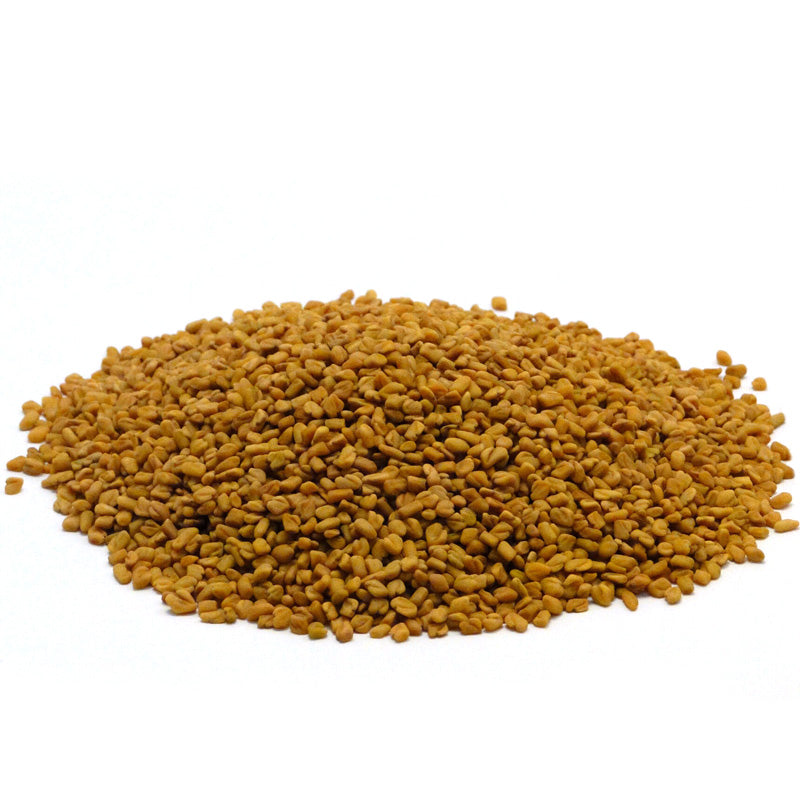1
/
of
1
Fenugreek Seed
Fenugreek Seed
Regular price
$1.95 USD
Regular price
Sale price
$1.95 USD
Unit price
/
per
Shipping calculated at checkout.
Couldn't load pickup availability
Fenugreek seeds, derived from the plant Trigonella foenum-graecum, have been used for centuries in culinary and medicinal practices. Here’s an in-depth look at fenugreek seeds and their benefits:
Nutritional Profile:
- Vitamins and Minerals: Fenugreek seeds are rich in vitamins such as B6, and minerals including iron, magnesium, manganese, and copper. They also contain a notable amount of dietary fiber.
- Phytochemicals: They contain compounds like saponins, alkaloids, and flavonoids, which contribute to their health benefits.
Health Benefits:
-
Digestive Health:
- Digestive Aid: Fenugreek seeds are known for their high fiber content, which aids in digestion and can help alleviate constipation.
- Gastric Relief: They have been traditionally used to soothe upset stomachs and help with gastritis and heartburn.
-
Blood Sugar Control:
- Glycemic Regulation: Fenugreek seeds may help regulate blood sugar levels. They contain soluble fiber, which can slow down the absorption of sugars in the digestive tract.
- Insulin Sensitivity: Some studies suggest that fenugreek can improve insulin sensitivity, which is beneficial for individuals with diabetes.
-
Hormonal Balance:
- Menstrual Health: Fenugreek seeds are often used to alleviate menstrual cramps and symptoms of PMS.
- Lactation Support: They are well-known for their potential to stimulate milk production in breastfeeding mothers.
-
Anti-Inflammatory and Antioxidant Properties:
- Inflammation Reduction: The seeds contain antioxidants that help reduce inflammation and oxidative stress in the body.
- Immune Support: Their antioxidant properties also contribute to overall immune system health.
-
Skin and Hair Health:
- Skin Care: Fenugreek seeds can be used in face masks and skincare products for their anti-inflammatory properties, which may help treat acne and soothe the skin.
- Hair Health: The seeds are sometimes used in hair treatments to strengthen hair and reduce dandruff.
Uses:
- Culinary Uses: Fenugreek seeds have a slightly bitter, nutty flavor and are used in a variety of dishes, particularly in Indian and Middle Eastern cuisines. They can be added to curries, stews, and spice blends.
- Herbal Remedies: Fenugreek can be consumed in various forms such as teas, capsules, or tinctures for its health benefits.
- Topical Applications: The seeds can be ground into a paste and applied topically to the skin for various treatments.
Preparation:
- Soaking and Sprouting: Soaking fenugreek seeds can make them easier to digest and enhance their nutritional benefits. Sprouted seeds are often used in salads and sandwiches.
- Powdered Form: The seeds can be ground into a powder and used in cooking or as a dietary supplement.
Safety and Considerations:
- Possible Side Effects: While fenugreek seeds are generally safe for most people, they can cause digestive issues like gas and bloating in some individuals. They may also interact with certain medications, such as blood thinners.
- Pregnancy: Pregnant women should consult a healthcare provider before using fenugreek seeds, as they may have effects on uterine contractions.
In summary, fenugreek seeds are a versatile herb with a rich nutritional profile and a wide range of potential health benefits, from digestive and hormonal support to skin and hair care.
Share

